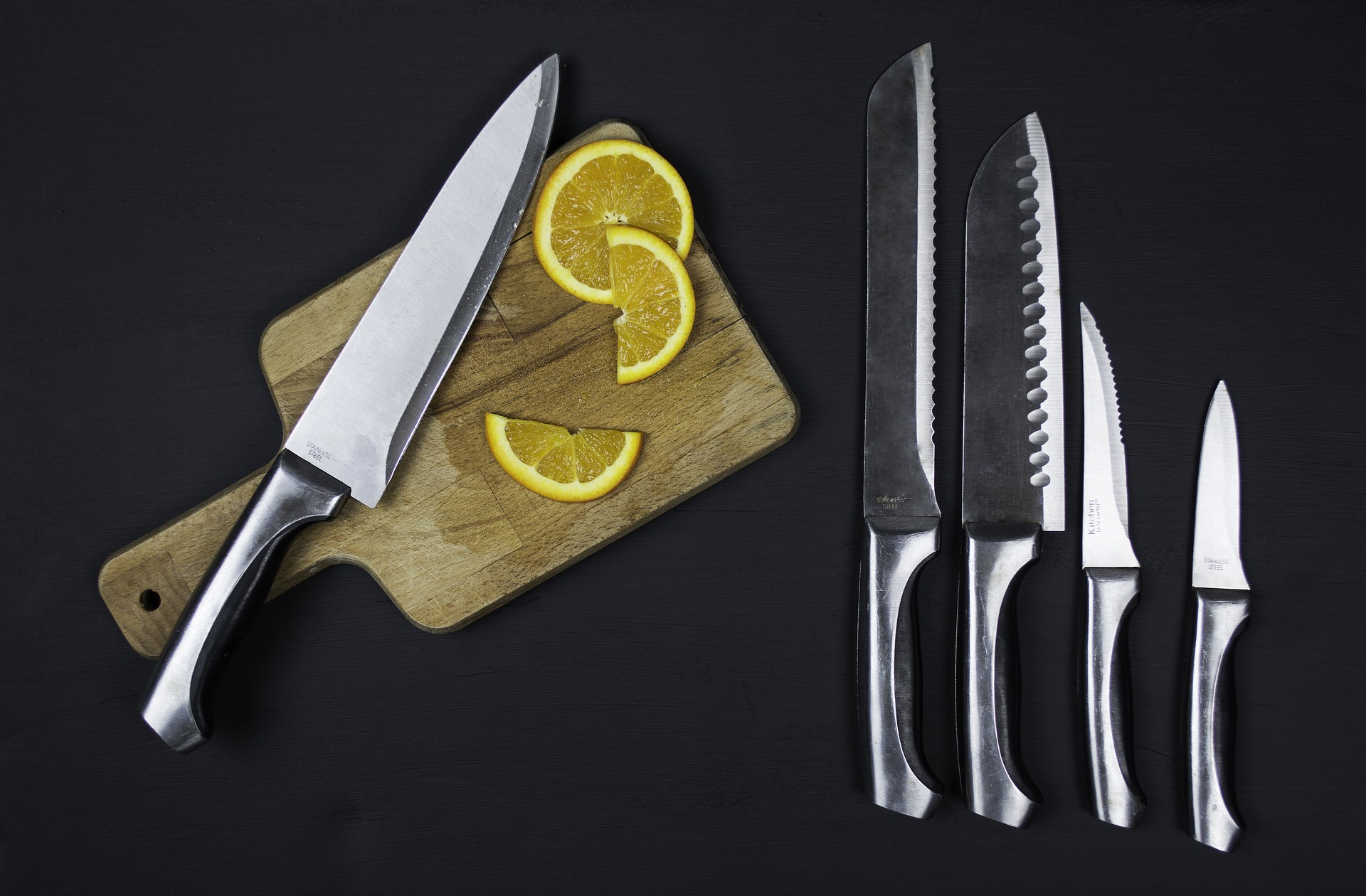If properly maintained, a high-quality knife should last a long time—possibly a lifetime. Your kitchen knives must eventually be decommissioned at some point.
But how many old kitchen knives be disposed of most simply and safely?
It would help if you never throw Knives and other sharp things because anyone who comes into contact with them could get hurt. Knife legislation also governs how you can carry a knife, although as a chef, you should be covered if you bring a knife to work every day.
There are various safe ways to get rid of your old knives, some of which will even reimburse you financially so you can buy new legal knives in the UK.
How To Dispose Of Chefs’ Knives?
- Wrap the knife tightly in cardboard, styrofoam, bubble wrap, or paper.
To prevent injury during disposal, this is crucial.
- To keep the wrapper in place, use tape.
Nothing can prevent the packaging from disintegrating without tape.
- Place a cork on the blade’s tip for added protection if feasible.
Always handle the blade’s pointed tip with extreme caution due to its high hazard level.
- Put the wrapped knives in a metal or plastic container that won’t puncture easily.
It serves no purpose to store your knives in a weak container they could cut through.
Alternative Methods Of Disposal
Before wrapping your knives and throwing them away, think of a few different uses. Your knives might not be suitable for use in a professional kitchen at this time, but they can still be useful to someone else. You could even leave with some money or at the very least contribute to recycling the materials.
The majority of kitchen knives are made of martensitic stainless steel. The value of components like chromium, nickel, and molybdenum will increase. A blade made of high-carbon steel, frequently made of the stainless steel grades 15N20 or 52100, is likely to sell for more money than one made of the lower-end stainless steel grades 420J.
Recycle
Everyone gains from the recycling option. Check with your neighbourhood recycling facility or civic amenity site to determine if they can recycle the needed products. Most garbage disposal facilities have a skip for scrap metal where you can dispose of dull knives and other cutting-edge kitchenware.
Deliver your knives to your neighbourhood recycling facility after wrapping them.
Sell
If you decide to sell your old blades, you might be able to get a reasonable price because there is a long-established market for steel scrap. Before bringing them around, ask your neighbourhood shops whether they will buy them. Also, be cautious.
Donate
Find out if your neighbourhood police station has a knife amnesty bin. These bins have been tested in some areas of the UK. It can be the simplest way for you to dispose of your blades responsibly.
Knives should be cleaned in warm, soapy water and properly dried before donating them to your neighbourhood charity shop to prevent pitting and water stains. Take the knives directly to the store after securely wrapping them as per the instructions at the top of the article.
You can also use a website like Freecycle to list the knives you want to collect, but if you do so, ensure the recipient is above 18 to comply with UK legislation.
Conclusion
It cannot be easy to part with your beloved kitchen knives, but they’ve served you well, and it’s time to step up your game.
